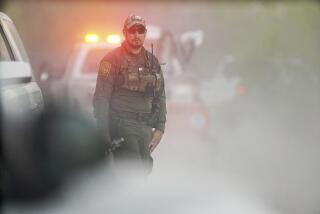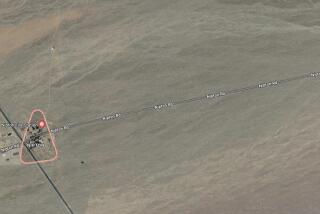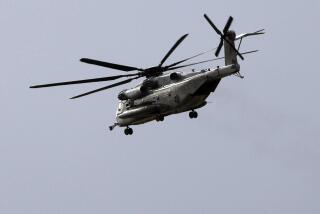Helicopter crash in Afghanistan kills nine Western troops
Reporting from Kabul, Afghanistan — Nine Western service members died Tuesday in a helicopter crash in southern Afghanistan, making this the deadliest year for NATO in the nine-year war.
Military officials did not immediately disclose the nationalities of the dead or say precisely where the crash happened. Two other Western troops, an Afghan soldier and an American civilian were injured, NATO’s International Security Assistance Force said in a statement.
But an ISAF official, speaking on condition of anonymity because he was not authorized to comment publicly, said the crash took place in Zabul province, a Taliban stronghold. A provincial spokesman said the chopper went down in the Daichopan district.
Combat deaths in June and July had spiked to the highest levels of the conflict. With Tuesday’s crash, according to icasualties.org, 529 members of the international force have been killed this year. The previous high was 2009, when 521 Western troops were killed, according to the website’s tally.
The south is the most active battle front in the war, and it is the region where most American troops who arrived as part of the summer’s “surge” have been deployed. About 100,000 Americans are in Afghanistan now; they make up two-thirds of the Western force.
The Western military said there were no reports of enemy fire in the area of the crash, which was the deadliest of the year. The incident was under investigation.
Taliban fighters have been unable to shoot down Western helicopters in large numbers, but insurgent fire brought down a Canadian chopper last month in Kandahar province, injuring eight troops. Another helicopter was shot down in June in Helmand province, killing four Western troops.
The summer saw a rash of helicopter crashes, mainly in the south. Another crash in Kandahar province in June killed three Australian servicemen and the U.S. pilot.
In a far-flung country with relatively few passable roads, the North Atlantic Treaty Organization’s war effort relies heavily on helicopters.
laura.king@latimes.com
More to Read
Sign up for Essential California
The most important California stories and recommendations in your inbox every morning.
You may occasionally receive promotional content from the Los Angeles Times.










